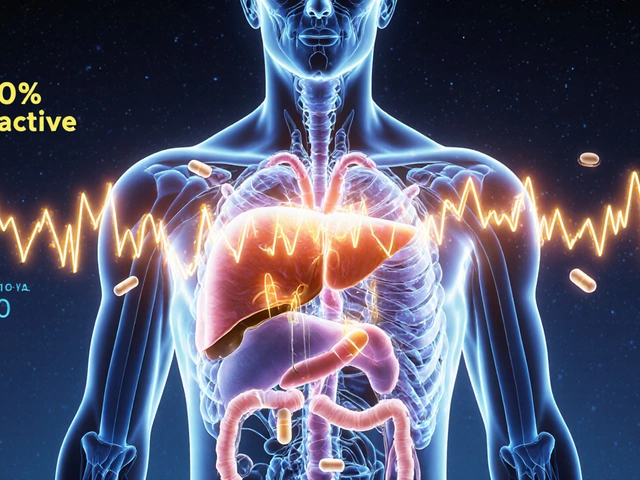Hydrochlorothiazide: Uses, Dosage, and Safety Tips
Hydrochlorothiazide (HCTZ) is a thiazide diuretic that helps your body get rid of excess water and salt. Doctors often prescribe it to lower high blood pressure or reduce swelling caused by heart, liver, or kidney problems. If you’ve been handed a bottle of HCTZ, you probably want to know how it works, how to take it right, and what to watch out for.
How Hydrochlorothiazide Works
Think of your kidneys as a filter that decides how much fluid stays in your bloodstream. HCTZ tells the kidneys to let more sodium and water pass out in urine. Less fluid in the blood means lower pressure on your artery walls, which eases the strain on your heart. The effect kicks in within a few hours, but the full blood‑pressure drop may take a few days.
Key Things to Watch Out For
Even though HCTZ is cheap and works well, it can cause side effects. The most common ones are increased urination, mild dizziness, and a slight drop in potassium levels. Low potassium can make you feel weak, crampy, or cause heart rhythm problems, so many doctors suggest a potassium‑rich diet or a supplement.
Other possible reactions include higher blood sugar, higher uric acid (which can trigger gout), and rare skin rashes. If you notice severe dizziness, fainting, or a rapid heartbeat, call your doctor right away. Always tell your pharmacist about any other meds you’re using, especially lithium, blood‑sugar drugs, or other blood‑pressure pills, because they can interact with HCTZ.
When it comes to dosage, most adults start with 12.5 mg to 25 mg once a day. Some people need up to 50 mg, but higher doses don’t always give better results and may raise side‑effect risk. Take the tablet with or without food, but try to stay consistent – the same time each day works best.
Hydrochlorothiazide isn’t a cure for hypertension; it’s a tool to keep your pressure in check. Combine it with lifestyle changes like a low‑salt diet, regular exercise, and limited alcohol. Those habits often let you stay on a lower dose, which means fewer side effects.
This tag page also gathers articles that mention Hydrochlorothiazide indirectly – for example, guides on buying cheap generic drugs online, tips on managing eye pressure, and advice on supplements that may affect blood pressure. Scanning through the list can give you a broader picture of how HCTZ fits into overall health management.
Bottom line: Hydrochlorothiazide is a simple, effective diuretic that can help control blood pressure when you use it correctly. Keep an eye on electrolytes, stay hydrated, and talk to your doctor if anything feels off. With the right approach, you’ll get the pressure‑lowering benefits without unnecessary hassle.
A detailed look at Hydrochlorothiazide, its uses, side effects, and how it stacks up against alternative diuretics and antihypertensives for optimal blood pressure control.
Recent-posts
Nov, 27 2025
Categories
Tags
- online pharmacy
- side effects
- drug interactions
- generic drugs
- online pharmacy UK
- drug safety
- opioid side effects
- pill organizer
- Tadalafil
- arthritis medication
- buy medication online
- prescription medication
- quit smoking
- motion sickness
- Sildenafil
- Vardenafil
- ED medication alternatives
- biologics
- medication safety
- generic medication prices






